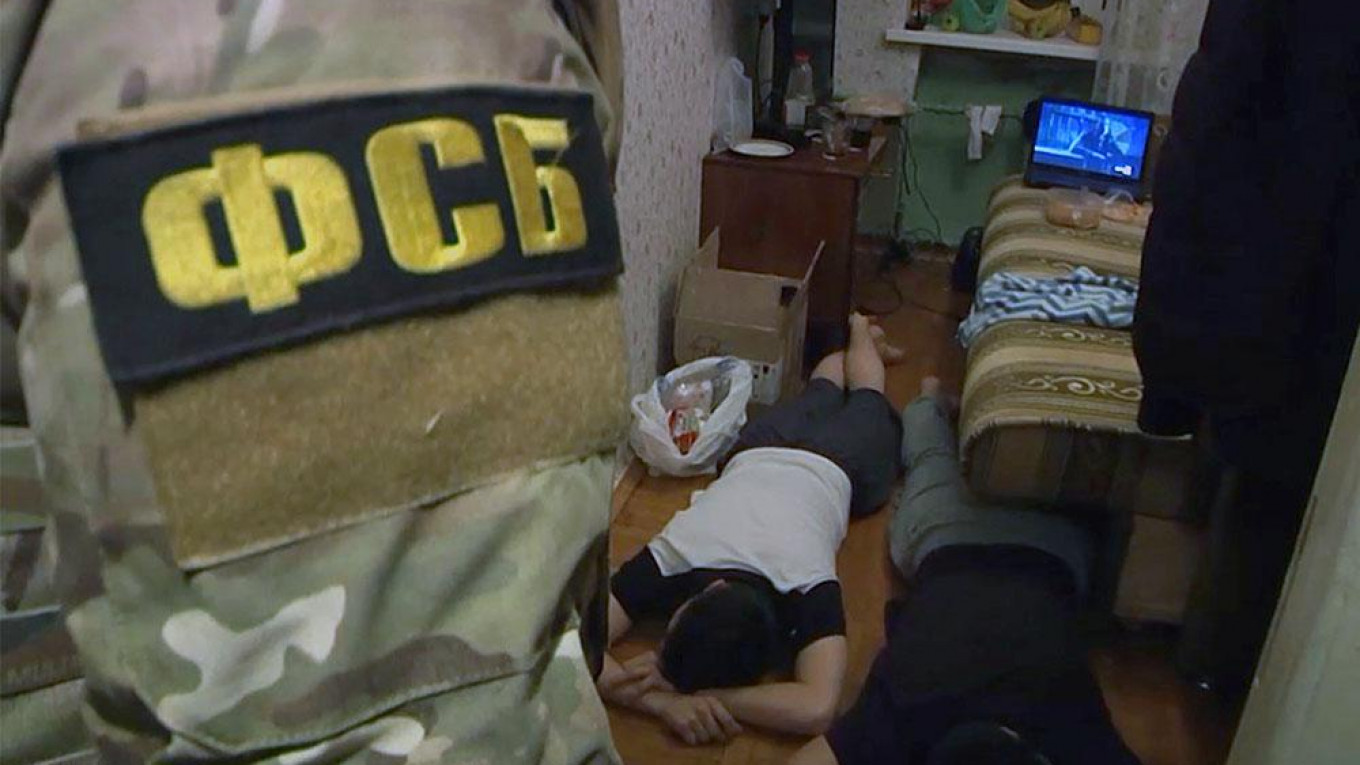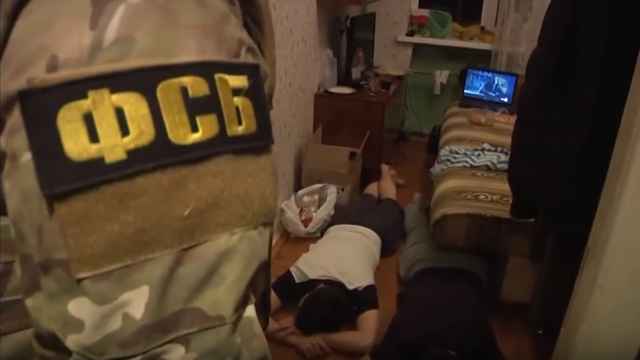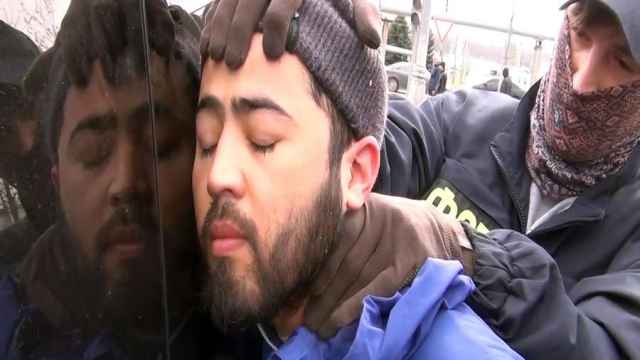Seven suspected members of Islamic State (IS) were arrested on Friday for preparing a suicide bombing in St. Petersburg for this weekend, the FSB press service announced Friday.
A suicide bomber earlier this year detonated an improvised explosive in a St. Petersburg metro car, killing 16 and injuring dozens. The FSB’s raid on Friday comes days after it said it foiled another attack planned for the New Year holidays in Moscow.
The suspects were part of an IS sleeper cell preparing a suicide attack at the Kazansky Cathedral in St. Petersburg on Saturday, the RBC business portal reported citing the FSB.
The group was also planning to “detonate improvised explosive devices in areas with large concentrations of people.”
An FSB video carried by RBC shows one of the suspects confessing to preparing the terrorist attack in St. Petersburg.
"I was supposed to make the explosives and... pack them into bottles with projectiles attached," he said.
The video also shows FSB operatives detaining a suspect at a shipping container that was supposedly used as an explosives lab and raiding an apartment, where explosives, assault weapons, ammunition and Islamist literature was found.
Security officials said that the sleeper cell was being directed by IS, a banned terrorist organization in Russia, from abroad using the encrypted Telegram messenger app, the state-run TASS news agency reported.
Telegram has been embroiled in a legal battle with the FSB over privacy rights and was fined last month for refusing to provide the security forces with access to the online conversations of two terror suspects linked to April’s metro bombing.
The messenger app cited concerns about users’ right to the privacy of correspondence.
A Message from The Moscow Times:
Dear readers,
We are facing unprecedented challenges. Russia's Prosecutor General's Office has designated The Moscow Times as an "undesirable" organization, criminalizing our work and putting our staff at risk of prosecution. This follows our earlier unjust labeling as a "foreign agent."
These actions are direct attempts to silence independent journalism in Russia. The authorities claim our work "discredits the decisions of the Russian leadership." We see things differently: we strive to provide accurate, unbiased reporting on Russia.
We, the journalists of The Moscow Times, refuse to be silenced. But to continue our work, we need your help.
Your support, no matter how small, makes a world of difference. If you can, please support us monthly starting from just $2. It's quick to set up, and every contribution makes a significant impact.
By supporting The Moscow Times, you're defending open, independent journalism in the face of repression. Thank you for standing with us.
Remind me later.






